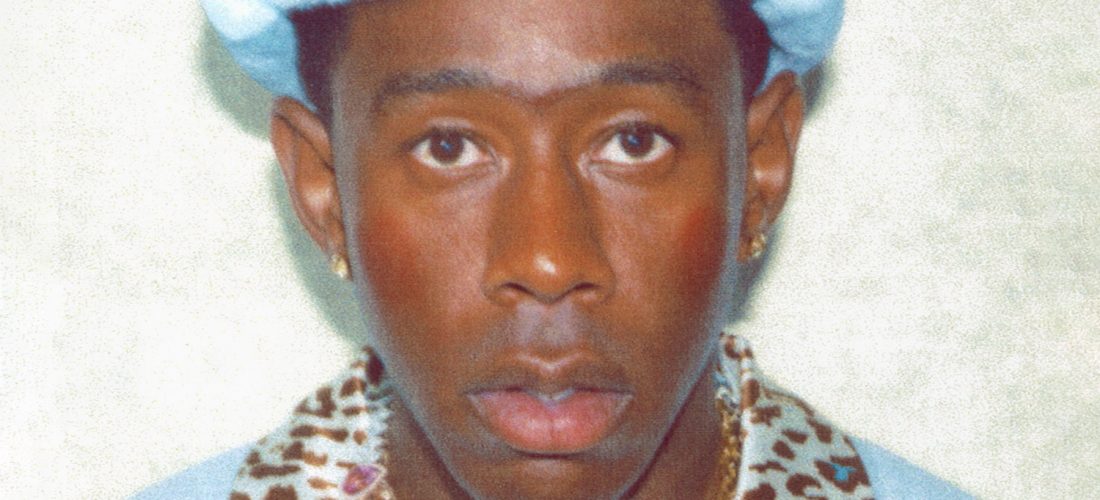Tyler the Creator Trades Teenage Angst For Mature Introspection on ‘Call Me If You Get Lost’
It certainly must feel good to say “I told you so.” Back in 2011, a then 20-year-old Tyler, the Creator routinely took to social media to profess a slate of ambitious goals. A Grammy Award. A collaboration with Lil Wayne. A music festival and amusement park. They seemed outlandish for the ascendant star, fresh from jumping on an unsuspecting Jimmy Fallon’s back during Odd Future’s live TV debut. But, as the story goes, Tyler has achieved those peaks and more. His career is a blueprint for internet-bred fame, making the now 30-year-old musician something of an elder statesman in the game.
All of which isn’t to say there weren’t growing pains. Tyler’s latest, Call Me If You Get Lost, contends with the dual-edged sword of growing up in the public eye. On “Manifesto” he raps, “I was canceled before canceled was with Twitter fingers,” possibly referencing the protests outside of early Odd Future performances, the open letter penned by Sara Quinn of Tegan and Sara, or his banishment from the United Kingdom. But it’s hard to stay mad when, as Tyler reminds us on “Corso,” you have “other-other-other-other” homes (“That’s my AKA / Hurricane-proof all the views, shit like ‘A Bay Bay,’ ” he continues). The rapper’s signature self-awareness has matured into some of the more compelling rap music being made today, and as such Call Me If You Get Lost proves to be Tyler’s best effort to date.
Tyler’s greatest gift continues to be his inability to do anything predictable. Where some artists make a concerted effort to surprise their fans with off-beat collaborations, Tyler’s entire ethos is built around bringing outsiders into his world, forcing them to shed the artifice of personal branding for the length of a verse. “Earfquake,” from his 2019 album Igor, finds Playboi Carti chirp-rapping over elegant piano chords to glorious effect. Similarly, Call Me includes a number of appearances that ultimately serve to bolster the universe Tyler’s created. The album is “hosted” by DJ Drama, a reference to the types of Datpiff tapes that defined an entire generation of hip-hop fans, Tyler included.
On “Wusyaname” YoungBoy Never Broke Again and Ty Dolla $ign show up like the real life NBA stars in Space Jam, cavorting with colorful creatures that defy physics. The production is signature Tyler, bright and ebullient, reminiscent of golden-era R&B. YoungBoy sounds as pleasant as ever while Tyler’s brooding romanticism finds itself confronting his own success. It’s still unrequited love that haunts him, but he’s no longer in a rage. “One minute, it’s a beautiful scene / Then it probably end with me bein’ took off, woah-oh,” he croons. Tyler remains the lonely misanthrope that arguably changed the face of rap — just a lot wealthier and wiser.
It’s not an unfamiliar story: an indie darling making it big and their content suddenly shifting from the relatable to the aspirational. On “Massa,” Tyler complains about his taxes (“Eight figures in taxes, takin’ that shit is stupid / A flower gets its petal, they pluck it but never use it”), and pairs it with a reasonable critique of the government wrapped in a sly boast about being rich enough to utilize tax havens (“It’s still potholes in the schools, where does it go? / It’s still loopholes that I use, nobody knows”).
More than anything, Tyler appears to have found a certain equanimity. He’s always been a legitimately skilled MC, nevermind how unserious he appears to have taken the craft in his early years. Similarly, his production remains as lush and dynamic as greats like the Neptunes or Swizz Beats. On Call Me If You Get Lost, you get the sense that it’s coalescing. Just listen to 42 Dugg’s appearance on “Lemonhead.” The hard-nosed MC floats over Tyler’s boisterous production. The beat sounds like a B-side from Outkast’s Aquemini filtered through Tyler’s Golf Wang lens. Dugg sounds right at home, a testament to Tyler’s increasing ability to not only bring other artists into his world, but build worlds around basically anyone.
Standout track “Juggernaut,” find Tyler connecting with Lil Uzi Vert and Pharrell, a collaboration that makes almost too much sense, and one that might erase memory of the lackluster “Neon Guts” from Uzi’s Luv is Rage 2. It’s Tyler in his element, spewing silly but kind of genius bars (“I’m so fuckin deadass I need some Timberlands”) and bragging like someone whose known how much they deserve for a very long time. It’s not necessarily the best track on Call Me, but it is easily the most fun. Tyler’s approach remains as anti-professional as ever. He’s done rapping about sexual assault and violence for the sake of shock value, but he’s not done ignoring the industry at large. On “Juggernaut,” we hear how refreshing that feels for his collaborators — both Uzi and Pharrell sound enlivened — and get a sense for the power Tyler, the Creator has harnessed in his decade-long career. His early dreams on social media were more that positive thinking, they were battle plans.
